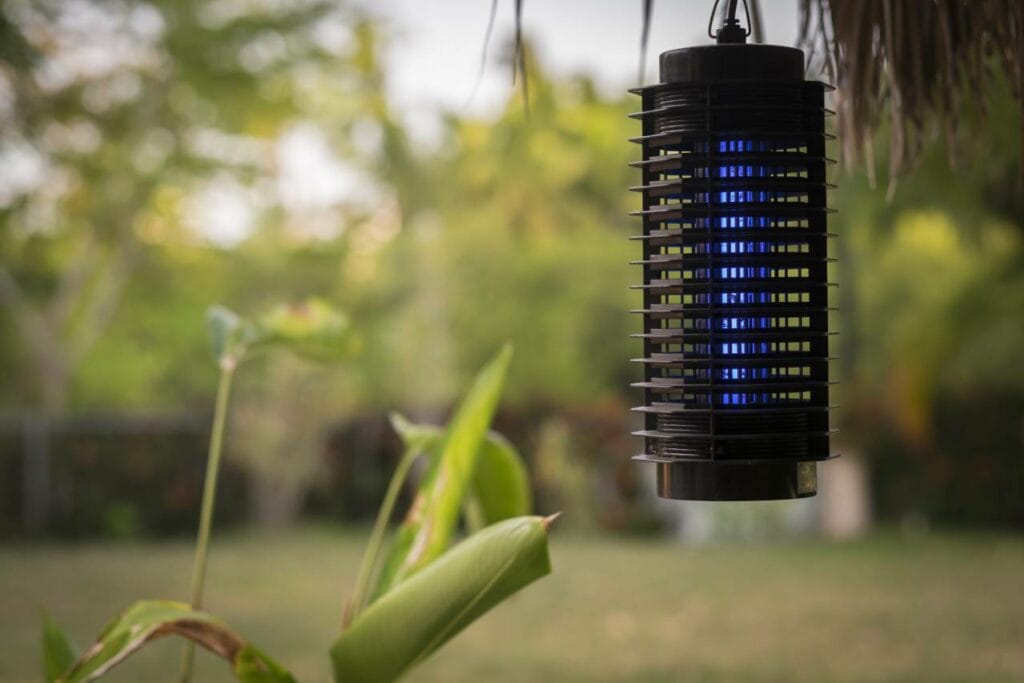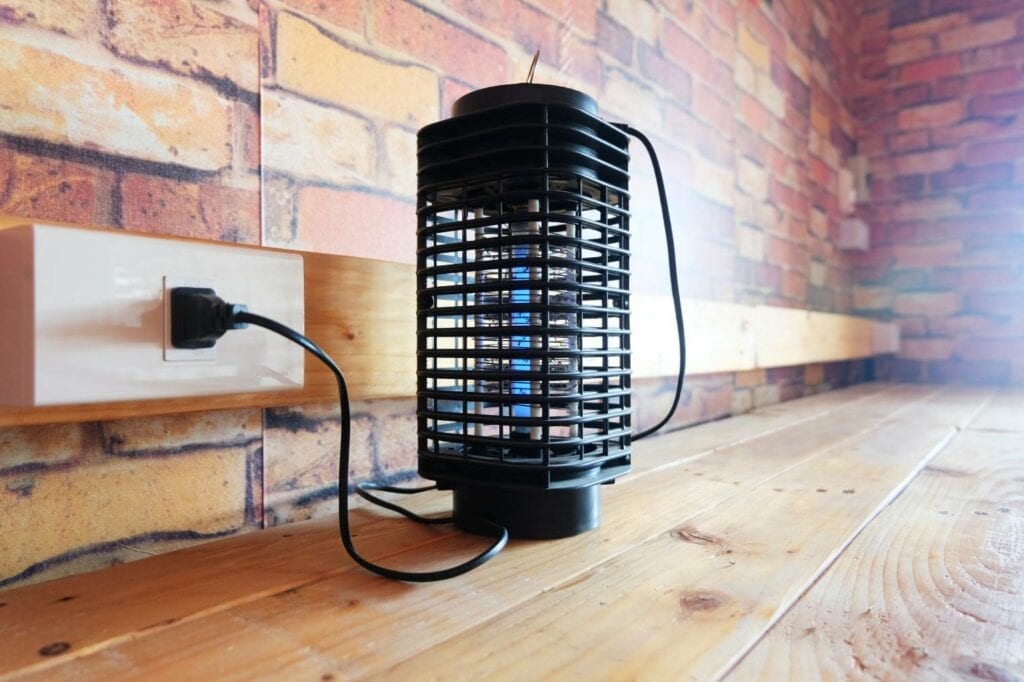Do Bug Zappers Actually Work? Facts & FAQ
-

- Last updated:

Typically, people buy bug zappers as a way to control mosquitos and other pests in the garden or yard. They use UV light that is supposed to attract the bugs in question to the center of the device. When they reach the center, they are electrocuted and killed. The principle is based on the fact that a lot of insects are not only able to see UV light but can actually see it better than visible light.
However, while these devices have long been used in gardens and even in some indoor settings, in a bid to control mosquito numbers, recent studies suggest that they are ineffective at attracting mosquitos and only serve to kill beneficial insects—they could harm the insect population of your garden.
How Do Bug Zappers Work?
Bug zappers have been on sale and used for decades. They emit ultraviolet light that is said to attract flying insects including mosquitoes. When these insects get inside the wire mesh that surrounds the zapper, they complete an electrical circuit and are essentially electrocuted. Arguably one of the reasons that these zappers have become so popular is because buyers get to witness the zap and the flash that occurs whenever an insect is disposed of.
There is no doubt that bug zappers kill bugs, with some estimates suggesting they can kill as many as 10,000 in a single night, but it turns out that they’re not very effective mosquito killers.
Their sole means of attraction is through the use of ultraviolet light. The light draws insects in, and a lot of insects are attracted to this type of light. This includes mosquitos. Mosquitos will investigate when they see ultraviolet light.

Mosquito Sense
Unfortunately, mosquitos are highly tuned to carbon dioxide and when they sense even the smallest amount of CO2 they will fly to investigate. So, while a zapper will initially get their interest and drag mosquitos into your yard, if you are sitting in the yard, their attention will be taken away from the zapper and they will hone in on you instead. This means that rather than getting rid of your mosquito problem, a zapper could actually be making it worse.
One study shows that out of 13,000 insects killed by a bug zapper, less than 0.25% of them were mosquitos.
Another problem with bug zappers is that they’re indiscriminate killers. They attract a whole host of insects and then kill any that come into contact with the electrical mesh inside the barriers. While this might include the occasional mosquito and other flying pests that bite, it predominantly includes beneficial insects like beetles and moths. Killing populations of beetles and moths can ruin the delicate ecosystem in your garden and may actually lead to an increase in other pests and bugs.
Conclusion
Bug zappers are not efficient mosquito killers and may actually be doing more harm than good by attracting more mosquitos and alerting them to your presence while killing off the beneficial insects in your outdoor area.
Mosquitos are a nuisance, but they are also highly skilled at detecting humans. They do this by detecting CO2 and then by being able to smell human skin and bug zappers do not use either of these to attract the bugs that they eradicate.
Featured Image Credit: Westend61, Shutterstock

